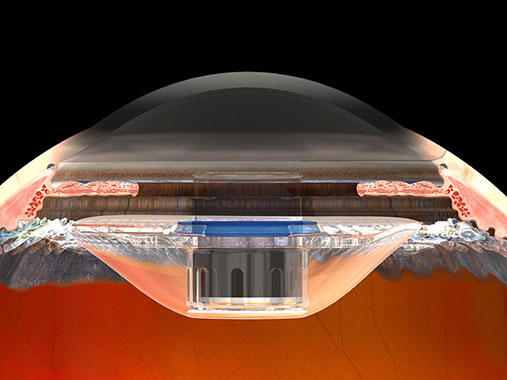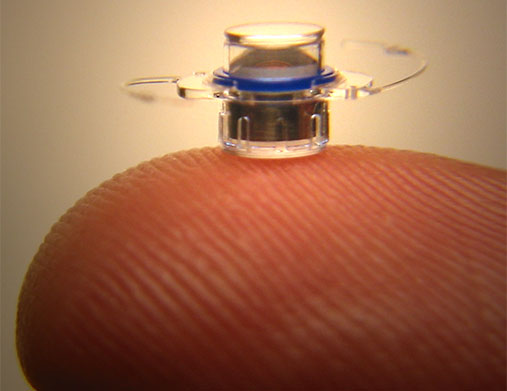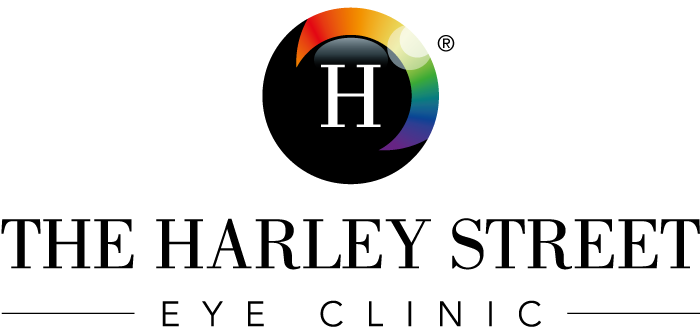Age-related macular degeneration (AMD) treatment
It is vital to treat early-stage AMD in a timely manner. This can slow the process of vision-loss, allowing you to maintain your eyesight for as long as possible. At the Harley Street Eye Clinic, we offer a tailored treatment programme depending on your needs, using the latest medicines and technologies available.
This management strategy affords you more time before surgery is necessary, allowing you to get on with your life. However, if your condition progresses to the end-stage and sight is severely compromised, surgical treatment will be needed. At The Harley Street Eye Clinic, London our CentraSight® programme uses the latest advances in implantable miniature telescopic lenses to treat end-stage age-related macular degeneration (AMD). We are one of the only clinics in the world to use this state of the art technology, and currently the only centre in the world to use it for treatment in people who have already had eye surgery to treat cataracts.
Can AMD progression be delayed?
Treatment of dry AMD
Treatment of wet AMD
How is End-Stage AMD treated?
CentraSight®: The Implantable Miniature Telescopic Lens
CentraSight is the first and only CE marked (signifying that the technology conforms with relevant EU health and safety directives) and FDA-approved ophthalmic implantable miniature telescopic (IMT) lens. The Harley Street Eye Clinic surgeon, Mr El-Amir was involved in clinical trials of this cutting edge technology with American ophthalmic specialists VisionCare Ophthalmic Technologies. He is one of the most highly experienced surgeons practising CentraSight in the world.

How does CentraSight work?
IMT: The most advanced technology available for end-stage AMD treatment

Are you suitable for a CentraSight implant?
What does the surgery involve?
CentraSight Programme
The procedure is performed on one eye only, and involves removing the eye’s natural lens and replacing it with the tiny telescopic implant, the IMT. The surgery typically takes 1-1.5 hours and is performed by our expert surgeon, Mr El-Amir. You will be able to return home the same day as the procedure.
MacularScope Plus Programme
What will recovery from CentraSight surgery involve?
Copyright © The Harley Street Eye Clinic 2019
Find out more
To discuss the cause and treatment of your condition, please call us on the number below.
Monday to Friday 9am – 5pm
0207 060 0086
Any Queries
See our Frequently Asked Questions page.
